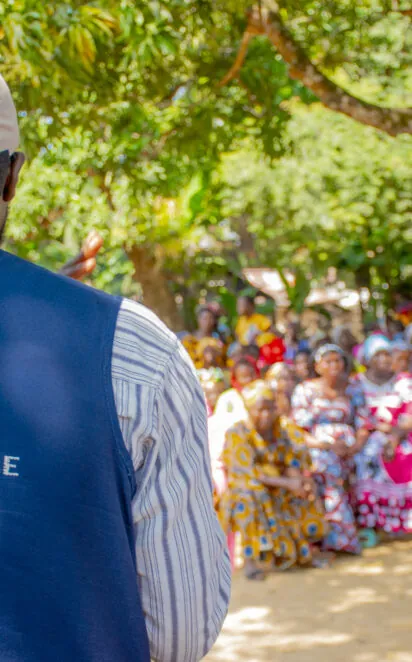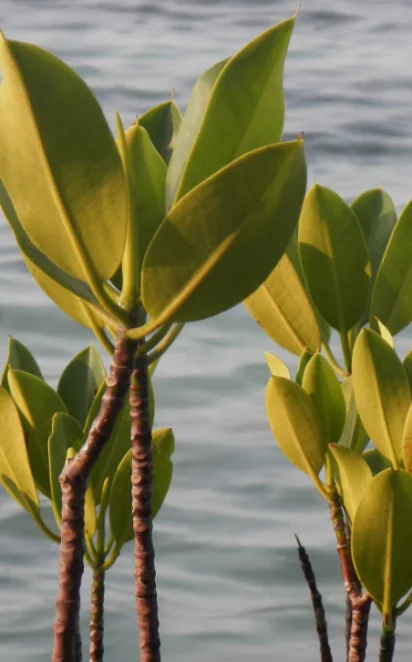A scalable carbon credit initiative restoring mangroves and creating sustainable income for coastal communities near Dar-es-Salaam.
Key Details
Project Lead: Action For Ocean (AFO)
Financial Innovation: Credits
Financial Support: Received mentoring, training, and capacity building support through ORRAA’s Ocean Resilience Innovation Challenge. Direct financial support has been provided by the UK’s Blue Planet Fund and by the Government of Canada.
Location: Tanzania
Project Timeline/Status: Ongoing (2021-2026)
People Supported: 9,672 (61% women)
Area Conserved: 3,632 ha
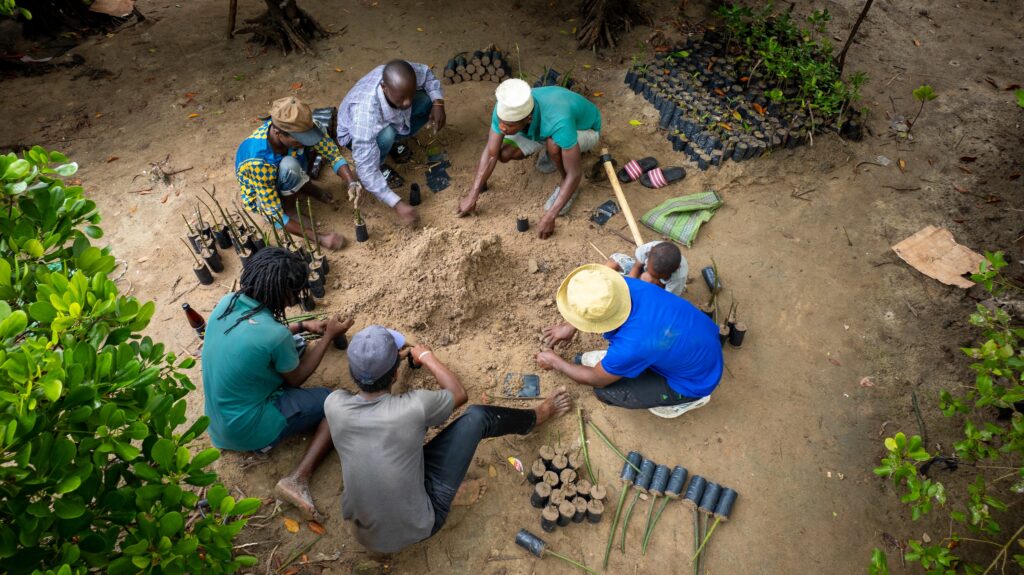
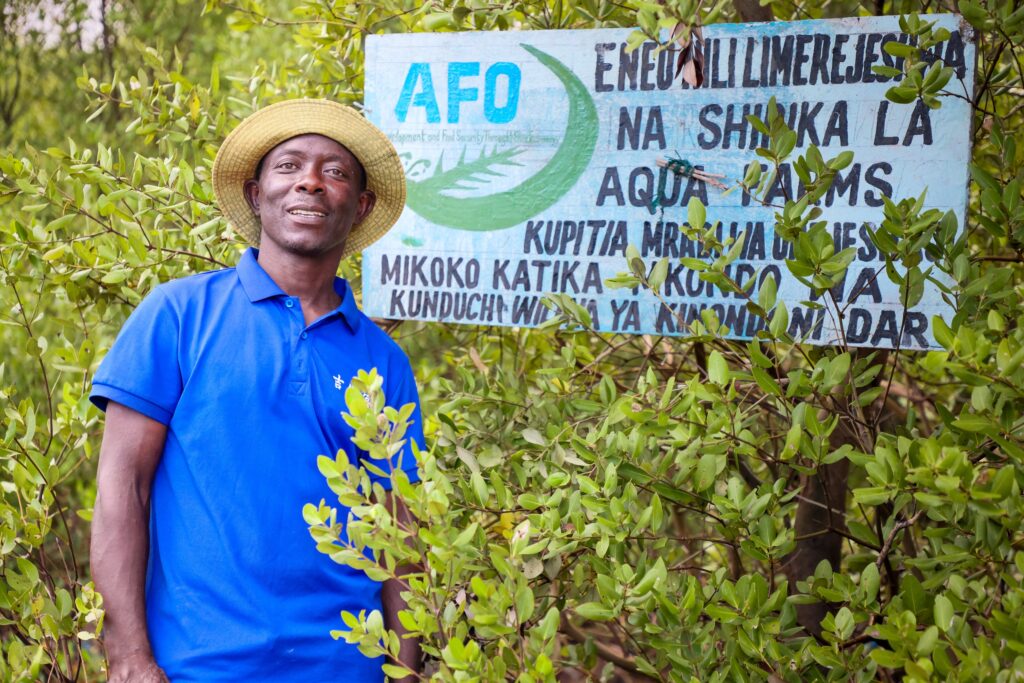
Summary
ORRAA is working with Tanzanian NGO Action For Ocean (AFO) to develop one of the country’s first community-driven Voluntary Carbon Markets. By conserving and restoring mangroves, coastal communities around Dar-es-Salaam are capturing carbon to generate tradeable credits, creating a new, long-term revenue stream that directly funds local priorities like clean water, education, and healthcare.
This innovative project began with support from ORRAA’s Ocean Resilience Innovation Challenge (ORIC). Mentoring and visibility from ORIC helped AFO refine its business model and attract further investment from the UK’s Blue Planet Fund and the Government of Canada, unlocking the potential to scale this approach and expand its impact across the region. Engagement in the new area of the Mnazi Bay Ruvuma Estuary Marine Park (MBREMP) since early 2024 has progressed to the signing of an MOU, paving the way for an intervention in the larger southern region of Tanzania.
Challenge
Mangrove forests provide essential ecosystem services, storing up to ten times more carbon than terrestrial forests and providing vital protection for coastal communities. Yet, they are disappearing at an alarming rate. In Tanzania, mangroves are often cut down for firewood, medicine, and construction, or damaged as people access floodplains for fishing and farming. Despite years of government action and community-led efforts, mangroves continue to be damaged and destroyed.
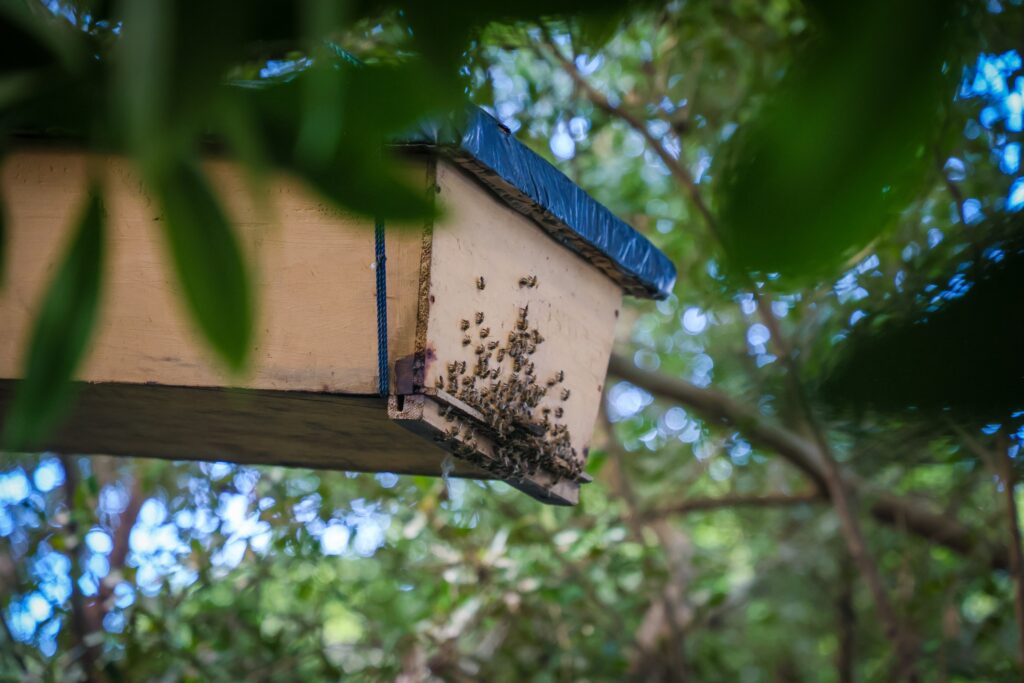
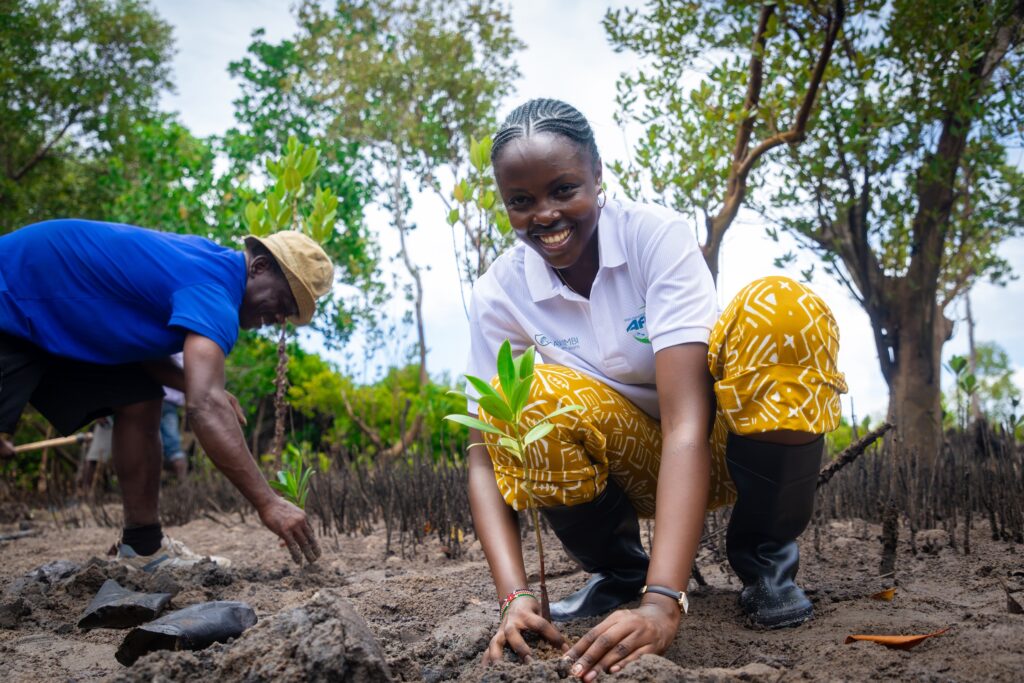
Solution
To reverse this trend, AFO is working with the Mbweni, Kunduchi and MBREMP communities on the outskirts of Dar-es-Salaam and Mtwara to improve resilience by generating long-term revenue from their local forests.
Through ORIC, ORRAA supported AFO to refine its business model and conduct research to quantify the amount of carbon sequestered by the restored forests. AFO is now partnering with Plan Vivo to verify its estimates and establish a voluntary blue carbon market project. ORRAA has also helped AFO to plant an additional 20,000 seedlings and train over 40 women to earn an independent and sustainable alternative source of income through beekeeping.
Scalability and Next Steps
Beyond incentivizing restoration, the project will directly benefit the community by ensuring the funds raised finance village facilities such as freshwater wells and education equipment. AFO has also earmarked 15% of the project’s revenue to be used for the creation of a Mangrove Conservation Fund dedicated to scaling the initiative and expanding it to two more mangrove forests in North Tanzania by 2030.
Carbon accounting, supported by satellite data, is already operational in the Mnazi Bay-Ruvuma Estuary Marine Park (MBREMP), covering an area of 6,319 hectares. In this region, project interventions are expected to reduce or avoid emissions at a rate of 22 tCO₂e per hectare per year.

“When we started replanting mangroves here in 2013, we were doing it just for the love of our environment, without knowing what mangroves would do for us. But now I see blue carbon is much more important than we thought for the health of our planet. We hope that the establishment of this project will create an ecosystem where communities live in harmony with nature.” – Bernard Kaitira, Community Representative, Kunduchi


